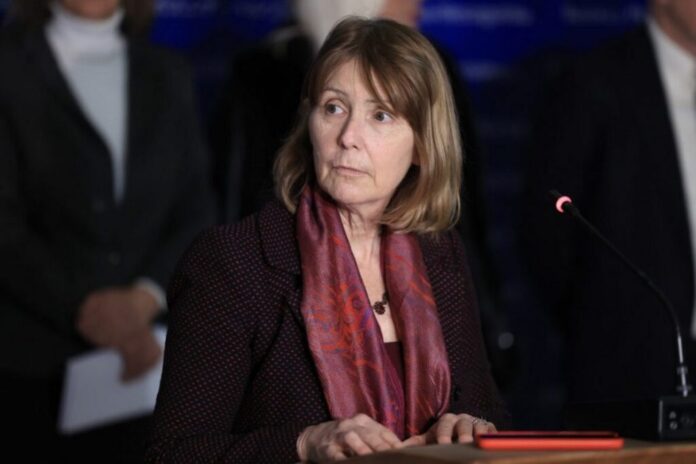Russia has carried out its aggression against Ukraine under a nuclear shadow, U.S. ambassador in Bucharest Kathleen Kavalec told the opening of the Global Forum to Prevent Radiological/Nuclear Terrorism, emphasizing that almost 200 experts from all over the world are gathering in Bucharest this week with the shared purpose of countering „the grave threat of radiological and nuclear terrorism.”
„We recognize that the threats of radiological and nuclear terrorism pay no heed to national borders and must be addressed collectively,” said the diplomat, adding that Russia has carried out its aggression against Ukraine „under a nuclear shadow marked by irresponsible saber-rattling and threats of escalation.”
„We have seen how the mere threat of nuclear escalation puts international stability at risk. Russia continues to leverage its nuclear arsenal to sow division – risking deliberate or unintended escalation. This dangerous climate reinforces for us of the need to strengthen our international institutions to counter radiological and nuclear terrorism,” Kavalec emphasized.
The U.S. ambassador mentioned in her intervention the Doicesti SMR project, which she described as „an excellent example of the value of international collaboration.”
„Supported by the U.S. Department of State, the U.S. Trade and Development Agency, the Romanian Ministry of Energy, and private sector partners, this cutting-edge project illustrates the positive potential of new nuclear technology. Building on over a quarter century of Romania’s safe and secure nuclear power plant operation experience, the Doicesti SMR project will replace a former coal plant with emissions-free power, create jobs, and spur economic growth,” Kathleen Kavalec pointed out.
In her turn, U.S. Under Secretary for Arms Control and International Security Bonnie Jenkins showed that Ukraine’s invasion by Russia puts energy security at the center of attention, as it contributes to geopolitical instability. „The reckless actions of Iran and North Korea and the further development of nuclear programs lead to even greater instability,” she opined, stressing that ever since Russia invaded Ukraine in 2022, „it has acted recklessly with regard to Ukraine’s nuclear and radiological infrastructure, risking to render the situation in this area even more serious.”
Jenkins stated that through this war, Russia has taken control of Europe’s largest nuclear power plant, the 6GW Zaporizhzhya facility.
„The Kremlin’s actions to attack Ukraine’s civilian nuclear infrastructure include strikes on nuclear targets in Kyiv and Kharkiv, and the capture of the Chernobyl exclusion zone. (…) There are increasingly more threats related to Russia’s irresponsible actions in Ukraine,” the American official said, adding that the Ukrainian authorities have reported the loss of regulatory control over more than 1,500 radioactive sources since the start of the Russian invasion in 2022.
AGERPRES




